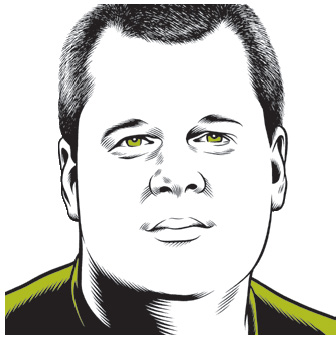- LAUREATE: Gao Xingjian (China, 2000)
- BOOK READ: Soul Mountain, translated by Mabel Lee
A Conversation
DANIEL HANDLER: Not long after Gao Xingjian won the Nobel Prize, I went to my local bookshop and there was a big pile of copies of Soul Mountain. It was inspiring. Everybody wanted to read him.
THE BELIEVER: You remember it was a used-book shop, right?
DH: I realized it was the dream of the Nobel Prize, if not the dream of literature: people eager to read a book from a foreign land, a disparate culture—
BLVR: —and sell it back to a used-book shop. You bought one from a huge pile of used copies. People had tried to read the book and had given up, or read it but didn’t like it enough to keep it. And “foreign land”? “Disparate culture”? You really think China is an unknown quantity in San Francisco? Not to mention that Gao Xingjian has spent a great deal of his writing life in Paris. Soul Mountain easily owes as much to the French literary tradition as it does to the Chinese one, not that you actually know very much about the Chinese literary tradition. In fact, Soul Mountain reminded you the most of the work of Julien Gracq, a Frenchman who wrote many meandery books of fiction.
DH: I love Julien Gracq. He’s one of my favorite writers.
BLVR: Still, you’ve had trouble finishing several of his books.
DH: Nevertheless, his work has such nice flow. It moves from exposition to digression, from fiction to memoir, from observation to drama.
BLVR: Well, not much drama. It’s the same with Soul Mountain—you won’t find much of a plot. The book describes a journey taken by an outsider through the rural, mountainous region of China in search of solace.
DH: The outsider is presumably a stand-in for the author, who chose exile in 1987 following a successful career as a dramatist in Beijing. An x-ray revealed him to be in the latter stages of lung cancer, and Xingjian was told he would die soon, only to learn shortly after that it was a misdiagnosis and he had a long life ahead of him.
BLVR: Can you imagine?
DH: Soul Mountain helps me imagine how such an event might shape one’s outlook. If ever a book embodies “It’s the journey, not the destination,” it’s this one, which is stuffed with all of the incidentals of travel—transportation, lodging, food, and the chance conversations with strangers—without any sense of forward movement.
BLVR:...
You have reached your article limit
Sign up for a digital subscription and continue reading all new issues, plus our entire archives, for just $1.50/month.
Already a subscriber? Sign in





